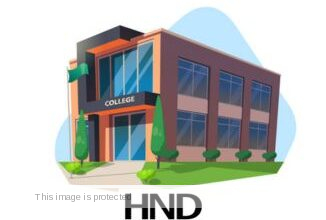First Class Degree ▷ 8 Secrets to Graduate with Highest Grade
If you are looking for the best guide on how to graduate with first class degree honours, stop scrolling and read this in five minutes.
As the world has developed and so many students take studies with laxity and laziness on the argument of unemployment and underemployment.
People who are graduates with first class honours are still met with a wider range of employment opportunities than people with any other class of degree.
Most scholarships for masters and Ph.D. programs in the UK are for first-class degree graduates.
Most universities offer automatic employment to graduates with first class.
These days, students are making first-class honors so often because of the availability of materials and online archives on their internet-enabled mobile phones and laptops, to ease their studies.
So, it is very possible.
In addition, a student is said to have finished college with a first class if his/her Cumulative Grade Point Average (CGPA) is between 4.5 and 5.0.
However, to achieve this means most of the courses offered by the students were graded with an A, some courses with a B, and sparingly a C.
Becoming a first-class graduate starts with your excellence from your choice of course from the first day in college till the end of the program.
Therefore, in this guide, you will learn to calculate your CGPA and what you need to become a first-class honors graduate in the United States of America, the United Kingdom, Canada, Australia, Singapore, Germany, Netherlands, Sweden, New Zealand, India, Pakistan, The Philippines, Brazil, Nigeria, South Africa, Ghana, Cameroon, Egypt, Ethiopia, Tanzania, Kenya, Zambia, Zimbabwe, Uganda, Senegal, Dubai, Malaysia, Turkey, Tunisia, Portugal, Italy, Romania and other countries.
First Class Honours Degree Benefits
Even though getting an honors degree takes hard work, commitment, discipline, and time.
Here are the advantages you get for obtaining a first-class honor degree:
1. Easy Access to Scholarships and Award Opportunities
Some universities aid first-class graduates with scholarships, better accommodation, and various awards and grants.
Students who have access to these opportunities might have decreased tuition fees.
Also, some schools offer monetary gifts and provide more opportunities to win prizes.
These are done to encourage students who require additional financial support to afford higher education.
2. Higher Chances of Employability
Graduates with first class honors degree turns out to be the most selected candidates with higher GPA scores, especially for entry-level positions by employers.
These most times are used to cover up for lack of work experience.
As your average grade is the only substantial criterium to get employed by companies.
In addition, an honours degree becomes is required if you aspire to enter highly competitive industries like the banking or law industry.
3. Attaining Role Model Position
When you achieve high scores and graduate with an honours degree, you get highly regarded.
It’s an achievement that makes your family and friends proud and helps you feel more motivated after working hard.
You might inspire other young people, most undergraduate students, to reach for an honours degree.
4. Cultivating an Act of Self-Discipline
Getting an honours degree is a challenging task that takes a lot of self-discipline.
However, if you graduate and enter the labour market.
With this, your ability to accomplish things on your own without being pushed can help you achieve top positions.
More so, you’re more likely to get promotions, desired projects and competitive salary offers if you prove to work independently and achieve results.
Steps to Graduating with a First Class Degree
Having discussed the benefits you get from obtaining and graduating with a first-class honors degree.
Let’s talk about how to graduate with a first class degree with ease.
Follow these steps to graduate with a first-class degree honours at your university.
1. Choose and Stick to a Course of Utmost Interest
If the foundation is destroyed, what can the righteous do?
Your success and failure as a student start and end with your choice of course to study at the university.
When talking about how to graduate with a first class degree, a potential candidate for a college faces the dilemma of wanting to study a course so badly.
If your parents or other external factors want you to choose another, there is every probability that the boat is sinking before it sails.
When you are interested in a particular course of study, you crave to know more about it.
You give it everything it takes, and the result is always excellent.
A person who can be deemed fit for a first class in a particular course must have everything about the course that interests him and will go the extra mile to ensure he performs optimally in it.
You see it as a call rather than a burden.
Any new thing you learn is an addition and a fulfillment.
Also, to be said is the fact that interest alone doesn’t earn you a first-class degree, but a lot of body of work.
To actualize this, you should:
- Be interested in a field of study.
- Secure admission for your course of interest.
- Have a mentor who has done well in that field.
- Keep the belief that you can achieve the highest level of mastery in that field by having a first-class honour.
- Be ready for challenges that come up during studying.
2. Start from The First Day in School and Do Not Burn Out
Achieving success academically, just like any other thing in life, requires a very rock-solid foundation.
From the get-go, you must take your studies with utmost seriousness.
It is to be said that the CGPA of the first semester, and the first year, is the foundation of your outstanding success, mediocrity, or failure.
Academics do not forgive a poor start.
It is to be said that most of the year-one courses are revisions of secondary school work that serve as the foundation for your college work.
Also, you must perform excellently in the first year, and the subsequent years must be a consolidation of the good start.
However, there is a need for you to rekindle your belief at every roadblock.
This will remind you of your initial commitments, dreams, and aspirations.
Sometimes you perform badly in your work; you need to remind yourself that you are in college for a first class and that you need to fulfill that.
To navigate through:
- You start from the first day of school.
- Do not procrastinate.
- Have a daily routine of studies.
- Identify students with similar interests.
- Identify areas of your secondary school education that you are deficient in that apply to your college courses and work on you.
3. Know the Expectations of Each Course and Lecturer
Another way to graduate with a first class degree is to know what each course and lecturers expect from you.
One reason students fail courses and have lower grades is that they don’t put into cognizance, the requirements, and expectations of each course.
Respond to questions from the angle of your understanding and not the angle of the course expectations.
To be clear on the expectations, there is a need for you to ask questions, be attentive to details of responses and make inquiries from excellent students of such courses in the past.
In my college days, one of my esteemed lecturers would set questions that must be answered in not over one sentence.
Any answer given in more than a sentence is void. And there are others you must expatiate with copious examples.
Following these simple instructions may mean a lot more to some lecturers than your show of mastery of such concepts.
You must stick to the expectations of courses and lecturers to have a good grade to pursue a first-class degree ultimately.
However, to be sure of the expectations of the courses:
- Study past questions.
- Study the course materials before each lecture.
- Study the course materials without leaving out any of the items in the outline.
- Many lecturers have visiting hours. Use them to your advantage.
- Ask questions.
4. Attend Most Lectures If Not All
First-class degree-intending students do not joke with lectures.
Attending lectures sometimes is part of the continuous assessment, but the secret of the courses is discussed during lectures.
It is to be said that some lectures are boring while some are interesting.
Care must be taken; most interesting courses are no walkovers.
They are sometimes harder to pass than boring ones.
A student hoping to have first class honours must attend lectures.
While attending the classes, ensure you jot down points as raised by the lecturer.
Most of those points are hints to know the mind of the lecturers and the course.
To actualize this, you should:
- Get to the lecture hall before the call-up time.
- Find a comfortable seat where the lecturer can be heard clearly.
- Jot down points and hints from lecturers.
- Ask questions.
5. Read Every Topic on Your Course Outline and Use Reference from Other Relevant Materials
Graduating with first class degree secrets won’t be complete if we don’t talk about reading every topic and course.
Students who are not selective with what items to read on the course outline are on the verge of excellence in the course.
When you are excellent in all courses, you are on your way to having a first-class honour.
You read and make sure you digest everything.
The reason for this is that reading selected topics will limit your options when you are to be assessed.
Also, as a student who craves to have a first-class degree, you must widen your horizons by reading and using other relevant materials outside your course materials.
This will explain your level of research and mastery of the course.
The course materials from your lecturer are the basic template, but you must show your research interests by citing other relevant works if you desire a first class.
To actualize this, you must judiciously use the library and online archives.
6. Be Serious with Your Continuous Assessment as Much as Your Exams
For graduating with a first-class degree, one of the cheat codes of students of first-class honours is that they take continuous assessment seriously.
Continuous assessments such as tests, assignments, and class projects are the first gateway to having A in a course.
In Nigerian universities, the continuous assessment is mostly 30 marks, and the examination is 70 marks.
An intended first-class student will take the 30 marks CA seriously.
When you do, you have prepared a table for success in such a course.
However, it is important to note that some students, when they have 30+ in CA; they choose to relax, as it already shows they may not fail the course.
This is not the practice of students who are of first-class potential.
You garner maximum scores in your CA as much as your exams.
Also worthy of note is that your scripts in the continuous assessment are kept because:
- You use it as a hint for questions that the lecturer might ask in the exams.
- Also, as a guide to know how lecturers frame your exam questions.
Sticking to this will eventually guarantee your success in the course and ultimately in your pursuit of a first-class degree.
7. Create a Reading Plan and Stick with It
This may seem like a simple thing to do.
Almost every serious student has a reading plan.
The problem is sticking with the plan.
Reading does not start and end with reading alone, it also means creating enough time for sleep, food, and any other engagements.
Having enough sleep will help in building and making your brain effective.
Your reading plan may also include the best time you are liable to assimilate whatever you read most.
Some people can’t read in a silent place, some must not hear a sound when reading, while others are not bothered about where to read.
I have a friend during my undergraduate days that cannot read without his earpiece on the highest volume.
While another friend does not read at night.
Also, having a reading plan is important, but it takes discipline to stick with it.
8. Give Importance to Every Course
One secret to graduating with a first-class degree is when each of the courses is given enough attention and seriousness.
Some students are fond of studying only the course that interests them the most.
Others study based on their relationship with a lecturer and the need to impress them.
Some also believe that because a course is aligned with your career choice, it must be given utmost importance, even to the detriment of other courses.
First class is earned through devotion to all the courses, not just excellence in one course.
It is also shocking to know that some boring lectures are easier to pass than interesting ones.
This is because you are easily carried away by your interest.
Also, you need to detach yourself from all forms of distractions.
So many social activities nowadays are in our tertiary institutions.
When your engagement is not managed, there is a tendency for your academics to suffer irreparable loss.
First Class Degree Calculation
Your class of degree is calculated in CGPA, which is the Cumulative Grade Point Average.
It is the mathematical representation of your performance from the first semester of year one to your final exam.
When you score an
- A in a course it stands for 5 points
- B stands for 4 points
- C stands for 3 points
- D is 2 points
- E is 1 point
- F is failed; to be repeated.
Each course is graded per unit. Example:
- Phonology is a 3-unit course, you had A
- Grammar is a 3-unit course, you had a C
- Literature is 3-unit course, you had A
- History is a 2-unit course, you had a B.
- Sociology is a 3-unit course, you had a B.
Therefore:
Phonology = 3 ×5(A) = 15
Grammar = 3×3(C) = 9
Literature = 3×5(A) = 15
History = 2×4(B) = 8
Sociology = 3×4(B) =12
So, 15+9+15+8+12= 59 points
The total number of units is 14.
The GPA is 59÷14= 4.21.
This is a second class upper division.
What Grades Do I Need to Get a First-Class Degree?
First-class degrees are awarded to students who have gotten a minimum of 70% or higher during their academic year.
This is because the 1st Class Honours degree requires three years of full-time study and six years of part-time study.
You’ll need an average of around 70% or above overall, which is calculated across coursework, presentations, projects, and exams.
Can I Still get a First Class Degree?
If your academic performance has been falling short, here are tips to help you get a first-class degree.
1. Understand the Requirements
To get a first-class degree, ensure you understand the purpose of your assignments.
You can also ask your professor and tutor about the goals of the assignment and read the criteria to understand how to attain a grade of A.
This is because a small misunderstanding can cause a lower grade.
2. Attend all Lectures and Seminars
Also, ensuring that you have access to library books and materials online can help you advance your knowledge.
In addition, visiting lectures and hearing the professor explain complex concepts can make it easier to comprehend the course material.
More so, seminars are also a great opportunity to ask questions and analyze complicated topics.
3. Read the Course Materials and Beyond
In some courses, you are given a list of required literature, articles, research papers, and textbooks to read.
Most students who don’t do so might not understand lectures thoroughly, and this can affect their grades.
The materials that your professor provides are most likely to be high-quality sources for future assignments and tests.
4. Be Unique and Original About Your Work
During assignments and tests, endeavor to research different studies and points of view to draw your conclusions.
With this, you can learn something new and gain independent thinking skills.
You can receive a better grade if your professor sees the work you put into the assignment.
5. Be Organized
When thinking of how to graduate with a first class degree, you must develop self-discipline.
You must organize your day to complete all the assignments, coursework, and reading materials that are required.
Doing this will help you avoid procrastination and develop a schedule that you can follow every day.
You might also require a few weeks to adapt to the schedule, but it gets easier with time.
6. Get Enough Healthy Sleep
A consistent sleeping schedule is important for your learning and cognitive abilities.
You must organize your day in a way that you complete your entire to-do list in time.
You can easily establish a healthy sleep schedule.
This is because feeling refreshed every day can energize you to persevere through challenging tasks and encourage you to pursue extra credits.
Final Words
Academic success is not rocket science or luck, it is a target, a belief, a whole body of work, an interest, devotion, and carefulness.
To graduate with a first-class degree, you must devote your time to each course and know the nitty-gritty of it.
You must be conversant with what is expected of you from each course and lecturer.
Good luck on your journey to writing your name with an indelible mark of honour.






